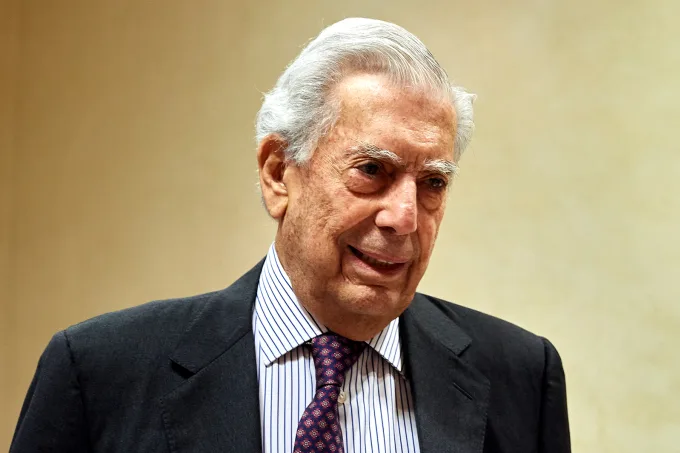Mario Vargas Llosa, the celebrated Peruvian-Spanish author and Nobel Prize winner known for his fearless critiques of authoritarianism and his profound literary contributions, has died at the age of 89. His family confirmed he passed away peacefully in Lima, surrounded by loved ones.
“It is with deep sorrow that we announce that our father, Mario Vargas Llosa, passed away peacefully in Lima today, surrounded by his family,” read a statement shared by his son, Álvaro Vargas Llosa, on X (formerly Twitter).
Widely regarded as one of the most influential Latin American writers of the 20th century, Vargas Llosa gained international recognition for works such as Conversation in the Cathedral (1969), Aunt Julia and the Scriptwriter (1977), and The War of the End of the World (1981). His 1977 novel was later adapted into the 1990 film Tune in Tomorrow, starring Keanu Reeves and Barbara Hershey.
In 2010, Vargas Llosa was awarded the Nobel Prize in Literature for what the Swedish Academy hailed as “his cartography of structures of power and his trenchant images of the individual’s resistance, revolt, and defeat.”
Born in Arequipa, southern Peru, in 1936, Vargas Llosa spent much of his early childhood in Bolivia, where his grandfather served as consul. He later returned to Peru, studied at a military academy and then at the National University of San Marcos. His literary career began early, with the publication of a play, La Huida del Inca, in 1952.
He would go on to work as a journalist and broadcaster, study in Madrid, and live in Paris, where he completed his breakout novel, The Time of the Hero (La ciudad y los perros, 1963). The book was an instant success, earning critical acclaim and being translated into more than a dozen languages.
Throughout his prolific career, Vargas Llosa authored numerous acclaimed novels, including The Green House (1966), Captain Pantoja and the Special Service (1973), The Feast of the Goat (2000), and The Bad Girl (2006). He also wrote essays, political commentary, and literary criticism, often blending his creative and ideological concerns.
Beyond literature, Vargas Llosa was an active political voice. In 1990, he ran for president of Peru, advocating for classical liberal values such as free markets and limited government. After losing the election to Alberto Fujimori, he moved to Spain and became a Spanish citizen in 1993. A year later, he was awarded the prestigious Cervantes Prize, the most distinguished honor in Spanish-language literature.
In a 2010 Nobel lecture, he cited Gustave Flaubert as a major influence and underscored the power of literature to confront injustice. “I think literature is pleasure,” he said, “but it’s also a very important instrument to move forward in life.”
The author’s family stated, “His departure will sadden his relatives, his friends, and his readers around the world. But we hope that they will find comfort, as we do, in the fact that he enjoyed a long, adventurous and fruitful life, and leaves behind him a body of work that will outlive him.”
A private ceremony will be held for close friends and family. Peru’s President Dina Boluarte called Vargas Llosa “an illustrious Peruvian of all time,” adding that his legacy would inspire generations to come.

